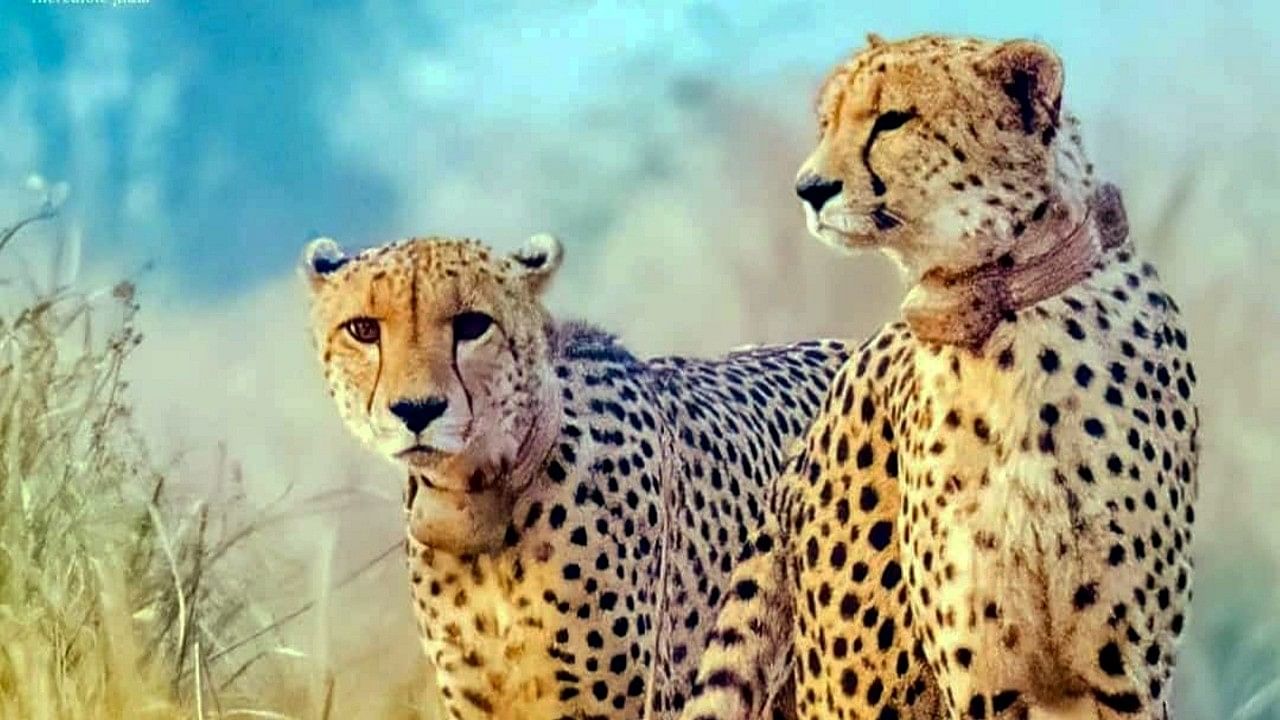
Representative image showing Cheetahs.
Credit: PTI Photo
New Delhi: None of the 12 surviving African cheetahs and 12 offspring born in India are free ranging at Kuno national park in Madhya Pradesh, two years after the first set of felines were released by the prime minister with fanfare.
While Union environment minister Bhupendra Yadav on Tuesday said “cheetah cubs thrive in their natural habitat,” conservationists pointed out that the animals were confined to their hunting enclosure or Bomas that are about 50 ha (0.5 sq km) each in size and not a single cheetah was ranging free in the wild.
Nine such bomas are in place at Kuno in addition to smaller quarantine enclosures where the animals were kept on arrival.
“Over the last two years, this project hasn’t progressed even a little bit towards achieving any of the stated conservation objectives. Instead, it is turning out to be a captive breeding programme set within protected areas,” Ravi Chellam, CEO, Metastring Foundation & Coordinator, Biodiversity Collaborative told DH.
Conservationists noted that the project’s objective of saving the grassland ecology would never be met unless the cheetahs were released in the park. But in the last two years the animals spent most of their time in the enclosures. The last free ranging cheetah Pawan died in August.
The Union government, however, painted a rosy picture. "As the world watches these cheetah cubs thrive in their natural habitat, we celebrate not just their survival but the resilience and dedication of all involved. This is just the beginning of restoring balance to our ecosystems,” Yadav said in a social media post, marking the second anniversary of the ambitious programme.
As per the Cheetah Action Plan, the imported African cheetahs were to be released within 3 to 4 months. This did not happen.
“Unfortunately, our decision-making and management have not been sufficiently informed by science and have also erred by being too conservative,” Chellam observed.
Last month, the Cheetah Project Steering Committee decided to release the African cheetahs and their cubs born in India, into the wild gradually after the monsoon ends in central India. The park is closed between July 1 and Sept 30.
With Kuno witnessing an intense downpour in recent weeks, the forest officials now keep a close watch on the cats to ensure their safety.
Last year 14 adult cheetahs were released from their bomas during the summer but following three deaths within three weeks during the monsoon, all were captured and put back into the enclosures.
Cheetahs require large areas in the wild, usually over 50 square km depending on prey availability. "The cheetahs are not truly living in the wild, despite spending two years on Indian soil. Cheetahs prefer long journeys, and they can be under severe stress," an African expert said on condition of anonymity.
Notwithstanding the project’s limited success, the forest officials now prepare the Gandhisagar reserved forest to accommodate the next batch of imported animals for which talks are on with Kenya. A breeding centre is also being readied at Gujarat’s Bunni grassland.
